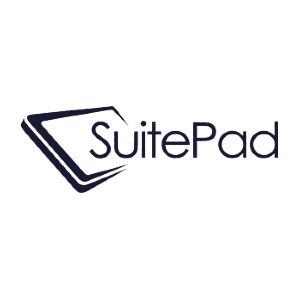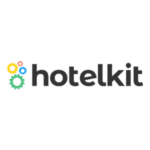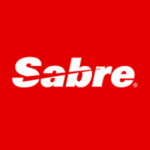 If 2022 is anything to go by – digital transformation is progressing at a pace even we hadn’t anticipated!
If 2022 is anything to go by – digital transformation is progressing at a pace even we hadn’t anticipated!
But sometimes the idea of keeping pace, upgrading standard ways into much needed innovation may look daunting. Not knowing where to start, what type of automation software is available or how best to implement are associated fear factors.
And in some cases, the fear is justified. A survey by global consulting firm Boston Consulting Group (BCG) found that 60% of companies plan to increase their spending on digital transformation in 2023, compared to 2022.
But more worryingly, according to 2,700 business executives questioned, over 70% of business transformations failed to achieve their objectives.
Knowing how to deliver best practice for digital implementation is vital. In our hotel industry, digital transformation can create significant cost savings, drive sustainability, enhance security and mitigate staff shortages.
But never more than now has digital adoption been so urgent. Staff shortages can be mitigated by supporting teams with technology, making daily tasks easier and helping teams become more connected. Climate change can be addressed with paper free solutions that not only save significant costs but also enhance compliance and data security. Just a few reasons why all hospitality organisations should be looking at efficient and cost-effective ways to future-proof their business through digitisation.
So for 2023, here is a refreshed rulebook for implementing successful digital transformation. Like any business change, it’s important to recognise best practice and avoid the mistakes that many may have already made!
1. DON’T make a bad process electronic
Persisting with the old ways of working and simply digitising an inefficient paper-based process doesn’t make good business sense – especially if you are going to replicate it across several functions or properties.
So the first tip is a simple one. Don’t make a time-consuming and disconnected process a digital one. Start by reviewing your policies and ask questions: does this document need to be approved by one manager, then another, or can we save time doing it in parallel?
Could we reduce the time to complete the task whilst enabling access to critical information faster? Why is this done differently in each department or property? You will often find that the answer is simply because “that’s the way it’s always been done”. However there has never been a more critical time for hospitality businesses to learn to adapt, and fast. Review, analyse, automate, measure and repeat… and then and only then, streamline; set in stone and standardise across all departments, properties and regions.
2. DO collaborate and share resources across properties
Perhaps the second most important piece of advice is about collaboration. Hotels under the same ownership or brand should not work in silo, running off different software platforms. While digitising one property at a time is already well worth it – expanding to several properties can yield exponential savings for everyone.
Clustering, also known as complexing or shared service centres, allows organisations to make the most of standardisation and automation by pooling resources in a digital shared environment. Technology can be tailored to hotels or hospitality groups’ own specific processes and policies. With several properties using a standard process and common system, finance or HR staff can support several properties at once.
Some organisations have been able to automate up to 70% of revenue auditing, accounts receivable and accounts payable, thus enabling a staff member from one location to service up to three properties, and in some cases even more. In a time of staff shortages, this is a great opportunity to drive smart efficiency within your organisation.
3. DON’T neglect data security and traceability
In today’s world of remote working, emails and video calls, sensitive financial or HR information can be open to security and processing issues. Handling this information in a secure structured system with a full ISO-accredited audit trail will solve many of these concerns.
Implement clear data security ‘best practices’ within the organisation and choose a technology platform with strong protections against any unauthorised access and data loss. In the case of cloud systems, verify where the data will be stored and under what conditions – especially because many countries require storage on local ground.
In an increasingly digital world, where the threats from hackers and malware are greater than ever before, choosing the right partner who takes security seriously should be a key consideration.
4. DO look at ways to save paper and the environment
While the guest experience is, in many hotels, already paperless, the back-office can be the forgotten piece of the puzzle. Night Audit reports with hundreds of pages, HR forms, invoices and other paperwork passed between departments, copies for reconciliation and approvals, storing all this paperwork for 5 to 20 years in line with local legislation…
This all represents many man-hours of unnecessary admin work and inefficient communication, as well as significant costs for paper, printer leasing, document archiving and long-term storage. Not to mention the environmental impact.
Based on our experience, a typical 300-room hotel spends over £30,000 on print related activity each year, felling on average, one tree every week. One of DocMX’s clients, the exclusive 5-Star FourPoints Darlington Harbour Hotel in Sydney saved 2.5 million printed pages yearly, equating to $1.5million in savings over five years… as well as 1,500 trees saved!
FourPoints Darlington Harbour Hotel in Sydney saved 2.5 million printed pages yearly, equating to $1.5million savings over five years… as well as 1,500 trees saved!— Photo by DocMX
5. DON’T reinvent the wheel – partner with someone who has done it before
There is no need for costly consultants or long-winded projects in order to digitise. Capitalise on past investments and expertise developed and proven over many years by hospitality and technology professionals. Choose a technology and team with a great track record, developed specifically for the hotel industry worldwide.
There are many document management and process automation solutions out there, typically costly, ill-adapted or developed at great expense to satisfy only a handful of hotel processes. You may also end up having to purchase several different software packages, reducing efficiencies and ultimately savings.
Instead opt for a ready to go, all-in-one solution customised to your organisation’s exact requirements, easily integrated with other hospitality systems, affordable, quick to implement and scalable to one or many of your properties without complication.
































